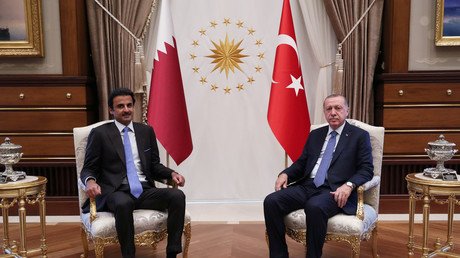US dollar completely ditched in trade between Iran & Iraq – official

The US dollar is no longer used by Tehran and Baghdad in bilateral trade, giving way to the euro and local currencies, as well as direct barter of goods, head of the Iran-Iraq Chamber of Commerce Yahya Ale-Eshagh has revealed.
“[The] US dollar has been removed from the list of currencies used by Iran and Iraq in their trade transactions and they are using Iranian rial, euro and Iraqi dinar for financial transactions,” Ale-Eshagh said on Saturday, as quoted by local media.
Apart from switching from the US dollar to alternative currencies, Iranian and Iraqi merchants have been engaging in barter operations, according to the official. The banking system, however, still needs improvements, since only a fraction of trade between the two countries actually goes through banks.
“Resolving the banking system problem must be a priority for both Iran and Iraq, as the two countries have at least $8 billion in transactions in the worst times,” Ale-Eshagh stated.
Iraq is the second country after China in terms of trade volume with Iran, according to the official. While exports to China are almost exclusively petrochemical products, Baghdad purchases a large variety of Iranian goods, helping to maintain high employment rates, Ale-Eshagh explained.
The official was answering a question on how unilateral sanctions, imposed on Tehran by the US, affected trade between the two countries. Washington withdrew from the landmark 2015 nuclear deal back in May, and is re-imposing restrictions on Iran. It has also threatened secondary sanctions on any country that continues to purchase oil from Iran, vowing to bring Tehran’s revenue from it to “zero.” The sanctions on the country’s oil sector are expected to take effect in November, but Iranian crude exports have already plummeted.
READ MORE: Can US bring Iranian oil exports to zero?
The renewed US sanctions have already sent the country’s national currency into a downward spiral, as well as forcing many European businesses to leave Iran. Tehran has repeatedly criticized the inability of the European signees of the 2015 deal to stand up to the US, threatening to abandon the agreement. While the EU countries have said they would still stick to the deal, renewed US restrictions forced such major companies as Germany’s Daimler and Siemens, as well as France’s Total, Peugeot, and Renault, to suspend their operations in Iran.
Subscribe to RT newsletter to get stories the mainstream media won’t tell you.















